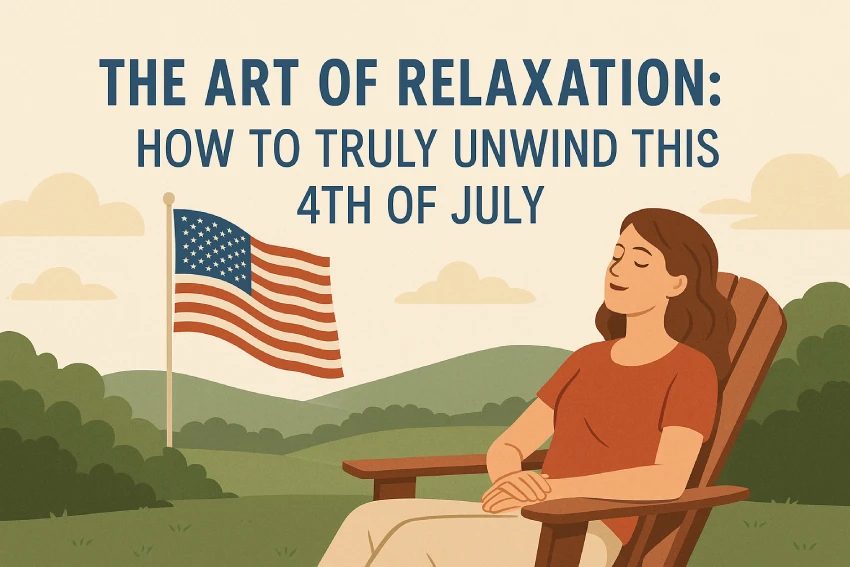The 4th of July is one of the most anticipated holidays in the United States, celebrated with fireworks, barbecues, parades, and lively parties. These activities bring joy and excitement, but they can also make the day feel hectic and overwhelming. Instead of rushing through the festivities, what if you could experience the holiday with a sense of calm and true rest? This guide explores the art of relaxation — a way to deeply unwind and feel peaceful during your Independence Day celebration, so you can fully enjoy the day with renewed energy and happiness.
What Does It Mean to Really Relax?
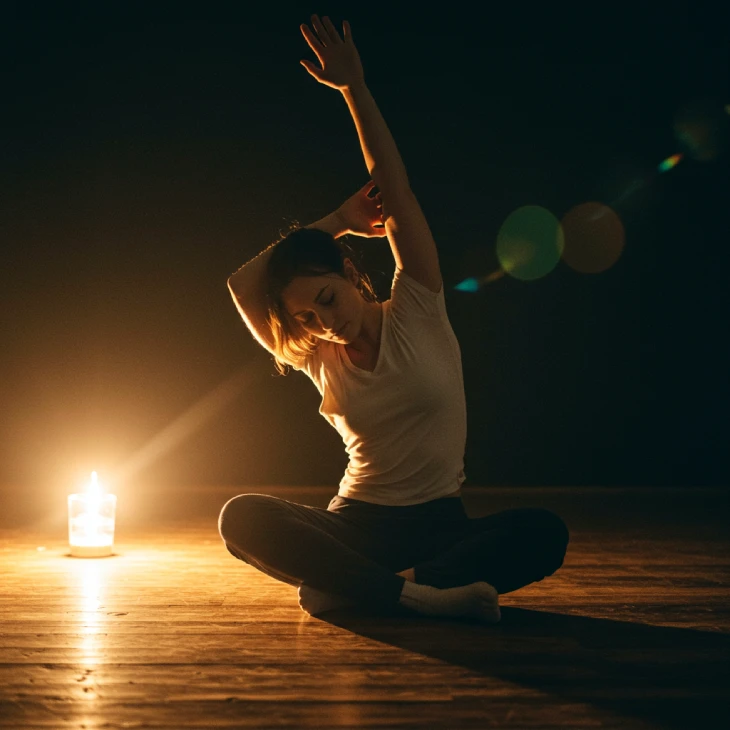
Relaxation is often misunderstood as simply sitting still or taking a break, but it is much more profound than that. True relaxation means reaching a state where both your body and mind are calm and rejuvenated. In this state:
- Your muscles loosen and release tension, reducing physical discomfort.
- Your breathing slows down, becoming deeper and more regular, which activates your parasympathetic nervous system (your body’s “rest and digest” mode).
- Your mind quiets, allowing stressful or repetitive thoughts to fade, promoting mental clarity and emotional balance.
Achieving this state regularly is vital for your overall health. It enables your body to repair cells, regulate hormones, and strengthen your immune system. Mentally, relaxation gives your brain a much-needed break to process emotions and memories, which can improve focus, creativity, and mood.
Although the busy nature of holidays may make it seem difficult to relax, understanding what real relaxation looks like is the first step to making it happen.
Key takeaway: Real relaxation is a restorative state of body and mind that supports your health and well-being.
Why Is Relaxation Important on the 4th of July?
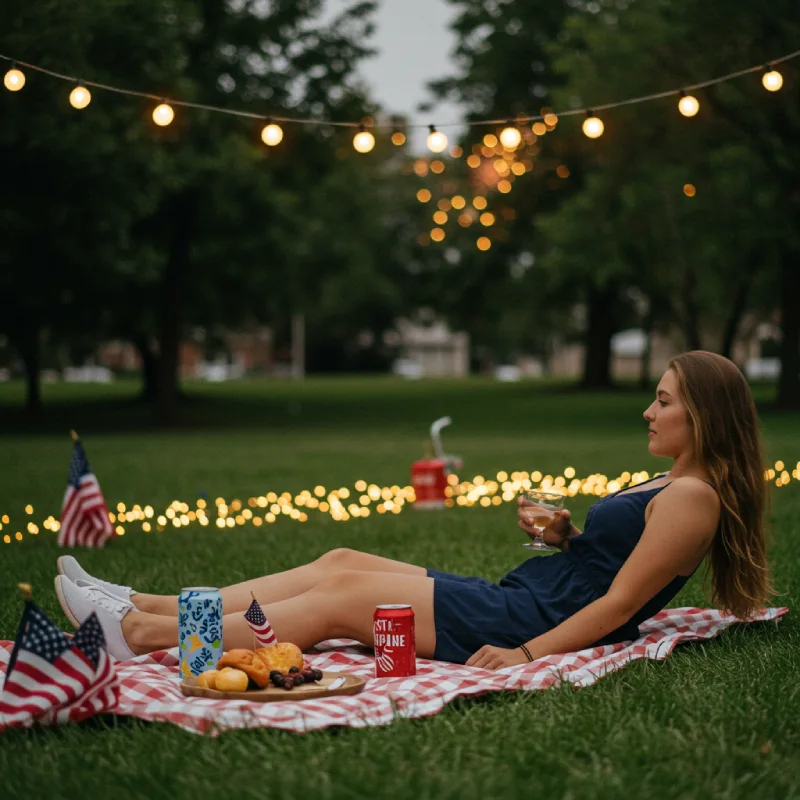
The 4th of July is packed with joyful but often demanding activities: family reunions, preparing and eating food, traveling, and watching fireworks. While these events are exciting, they also create stress — both physical and mental.
Stress triggers your body’s fight-or-flight response, which raises heart rate, releases adrenaline, and tightens muscles. Even positive stress, like excitement, taxes your energy reserves. Without deliberate relaxation, you risk ending the holiday feeling exhausted, overwhelmed, or emotionally drained rather than refreshed.
When you prioritize relaxation, you allow your body to recover and your mind to stay grounded. This balance helps you remain present and engaged in the moment, making your experiences more meaningful and enjoyable. You’ll be able to create joyful memories without burnout.
Key takeaway: Relaxation balances holiday stress, enabling you to fully enjoy and remember your 4th of July celebrations.
How to Plan Quiet Time on July 4th
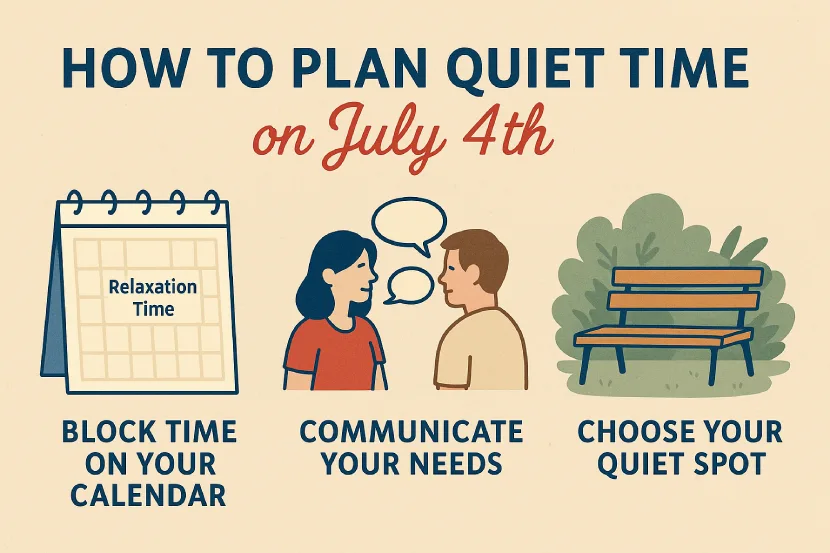
The foundation of relaxation is carving out quiet time, even in a busy schedule. This might seem challenging on a holiday filled with activity, but intentional planning makes it achievable.
- Block Time on Your Calendar: Treat relaxation like an important appointment. Write “Relaxation Time” on your calendar or planner for a specific window. This commitment signals to your mind and schedule that rest is non-negotiable.
- Communicate Your Needs: Share your plan with family and friends. Explain that stepping away briefly will help you recharge and be more present and enjoyable company later.
- Choose Your Quiet Spot: Identify a place where you can retreat undisturbed. It could be a cozy corner indoors, a quiet nook in the garden, or a peaceful bench at a local park. The environment should feel safe and soothing.
Even a brief 15 to 30 minutes of quiet time can drastically reduce stress hormones and refresh your energy, improving your entire day.
Pro Tip: Use a gentle timer or alarm to remind you to take your relaxation break.
How to Take a Break from Technology
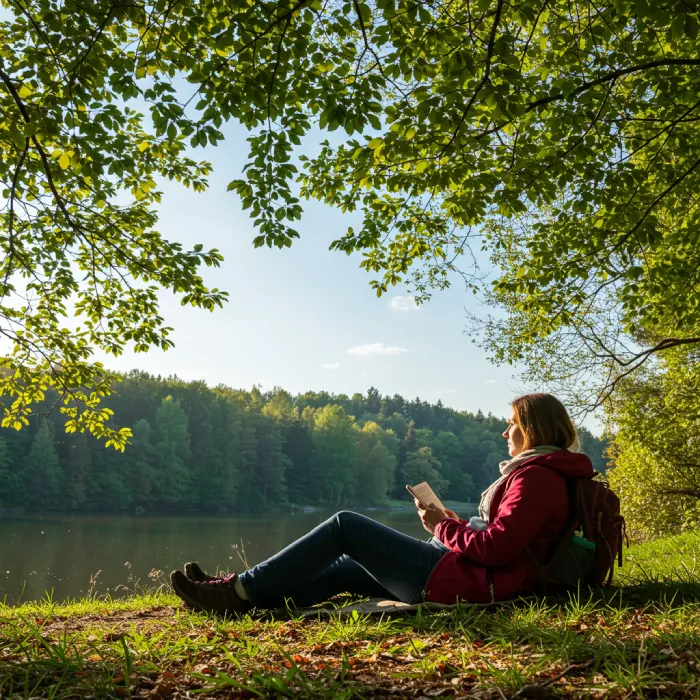
Technology—phones, tablets, and computers—can keep you mentally wired with endless notifications, news, and social media. To reach deep relaxation, it’s crucial to unplug and reconnect with the present moment.
- Limit Screen Time: Aim for a full or partial digital detox on the 4th of July. This means minimizing non-essential use of screens throughout the day.
- Avoid Work Messages: Set clear boundaries by turning off work emails, calls, and messages. Holidays are your time to rest and recharge.
- Engage with the Real World: Redirect your focus to the natural world and personal interactions. Observe the sky’s colors, listen to conversations, or simply enjoy your surroundings without digital distractions.
By giving your brain a break from screens, you reduce cognitive overload and foster mindfulness — the practice of being fully aware of the here and now.
Tip: If a full detox is daunting, start small with no-phone meals or specific “phone-free” zones.
How Does Mindful Breathing Calm Your Body?
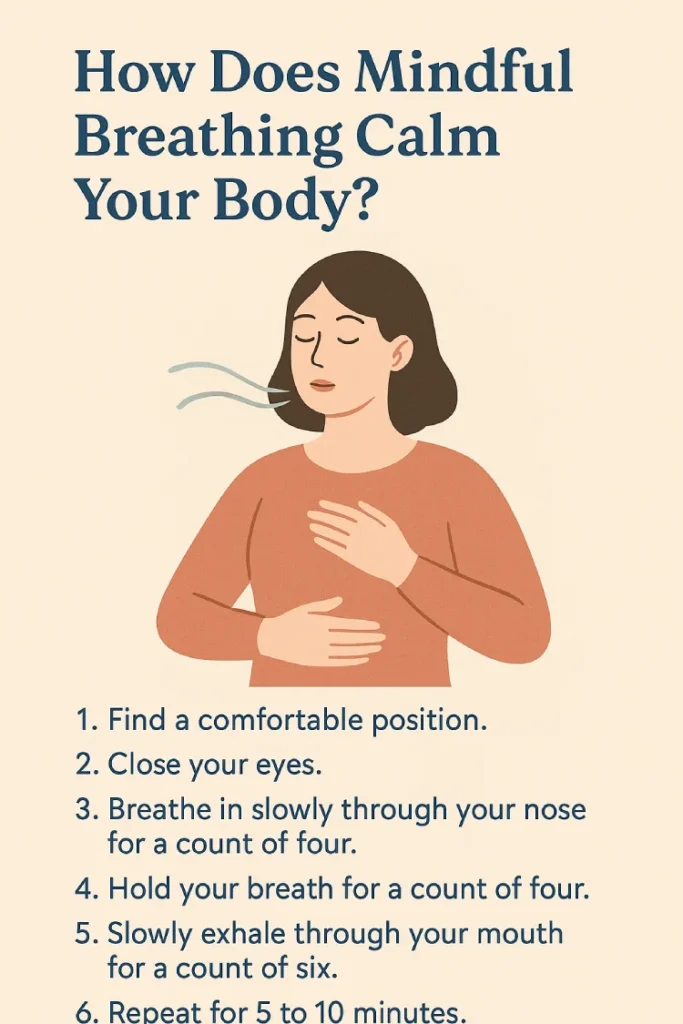
Mindful breathing is a powerful and accessible relaxation technique that anyone can use anytime to calm the nervous system.
Here’s how to practice mindful breathing:
- Find a comfortable seated or lying position.
- Close your eyes to minimize distractions, if comfortable.
- Breathe in slowly through your nose, counting to four. Feel your belly gently rise as your lungs fill.
- Hold your breath for a count of four, allowing oxygen to circulate.
- Slowly exhale through your mouth for a count of six, noticing your belly fall.
- Repeat this cycle for 5 to 10 minutes, focusing all your attention on the breath’s sensation.
This breathing pattern activates the parasympathetic nervous system, reducing heart rate and relaxing muscles. It also helps interrupt stressful thought patterns, grounding you in the present moment.
Tip: Practice mindful breathing before or during holiday activities to manage excitement and stress.
How Can Your Senses Help You Relax?
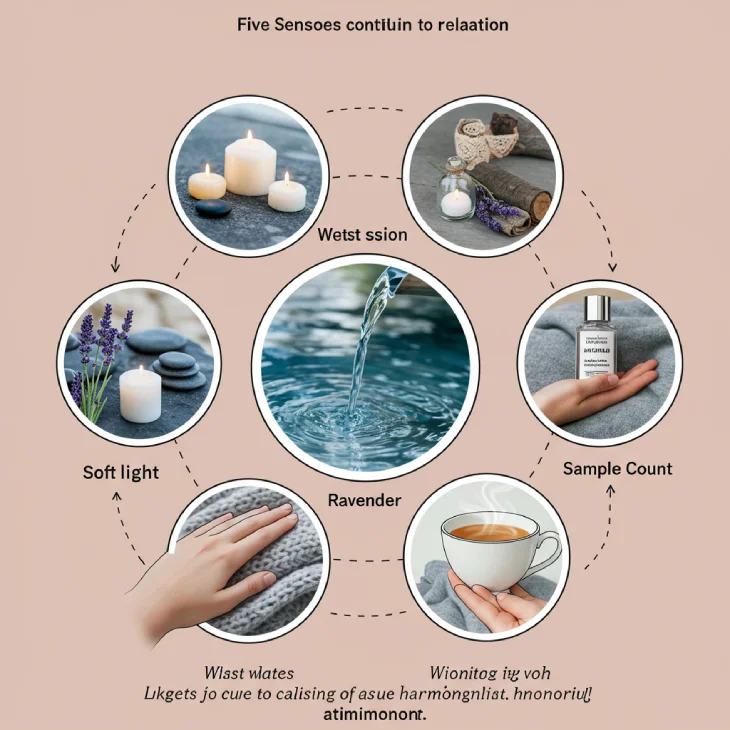
Relaxation isn’t just about stopping activity — it’s about intentionally engaging your senses to create a calming experience.
- Listen to Soft Sounds: Play gentle music, nature sounds like ocean waves or bird songs, or ambient rain noises. Avoid loud or abrupt sounds that spike adrenaline.
- Enjoy Calming Scents: Use lavender or chamomile candles, essential oils, or the aroma of herbal tea to soothe your mind.
- Savor Your Food: Eat slowly and mindfully. Notice flavors, textures, and aromas instead of rushing through meals.
- Feel Comfort: Wear soft, breathable clothing and wrap yourself in a cozy blanket. Touch familiar, comforting objects like a smooth stone or soft pillow.
- Look at Beauty: Observe calming visuals such as a garden, a piece of art, or the clear blue sky to inspire peace.
Engaging your senses helps shift your brain from a state of stress to one of relaxation by grounding your attention in the present moment.
Why Is Gentle Movement and Nature Time Beneficial?
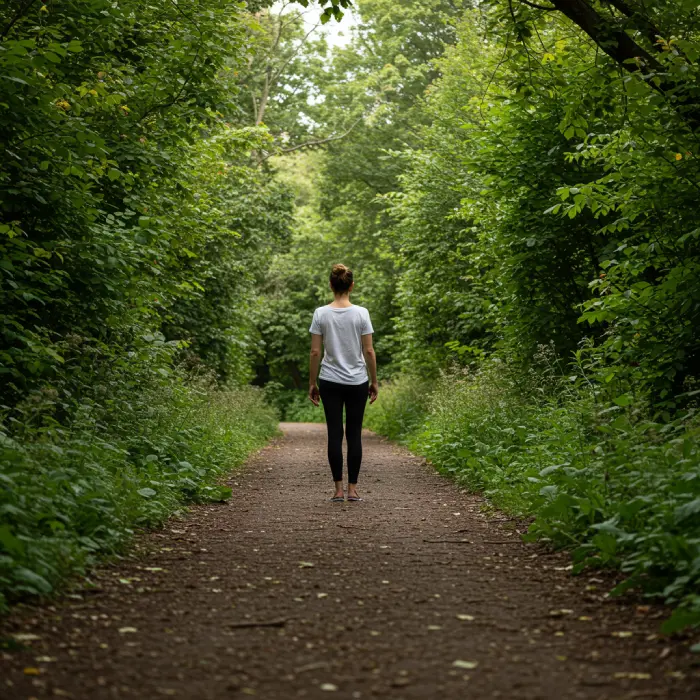
While intense exercise is energizing, gentle movement paired with nature exposure is particularly effective for relaxation.
- Take Slow Walks: Walking mindfully at a relaxed pace in a park or neighborhood lets you notice surroundings and clear your mind.
- Stretch Your Body: Gentle stretching or beginner yoga loosens tight muscles and promotes circulation without adding physical strain.
- Spend Time Outside: Even sitting quietly in your garden or on a balcony exposes you to fresh air and natural light, both of which improve mood and reduce cortisol levels (stress hormone).
Spending time in nature is linked to lowered blood pressure, reduced anxiety, and enhanced mental clarity — all key to relaxation.
How to Avoid Too Much Excitement from Fireworks
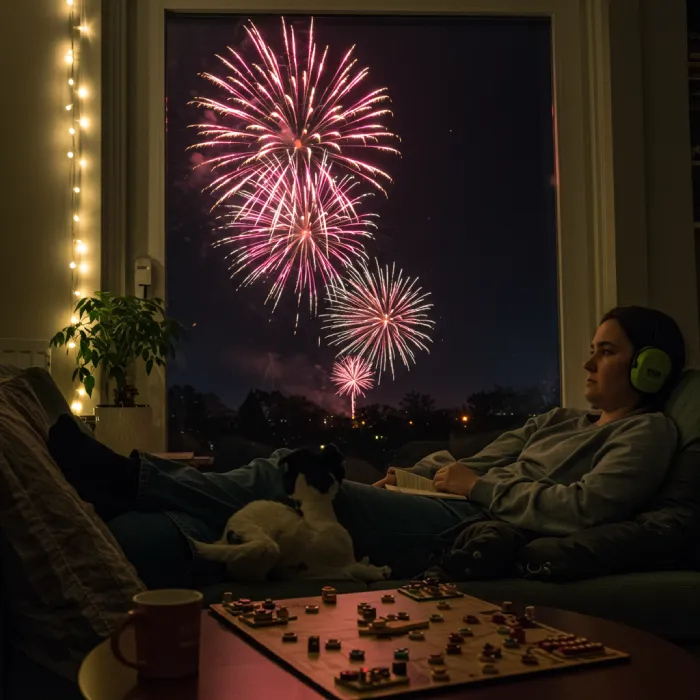
Fireworks are a hallmark of the 4th of July but can be overstimulating for some people and pets due to their loudness and brightness.
- Watch from Afar: Find a viewing spot further away where sounds are softer.
- Use Ear Protection: Earplugs or noise-canceling headphones can reduce volume and prevent discomfort.
- Choose Alternative Activities: If fireworks cause distress, celebrate with quieter activities like themed movie nights, board games, or star gazing.
- Protect Your Pets: Keep pets indoors in a quiet room with windows and curtains closed. Provide familiar toys or soothing music to help distract them.
These strategies let you enjoy the holiday safely and calmly.
How Can Gratitude Enhance Your Relaxation?
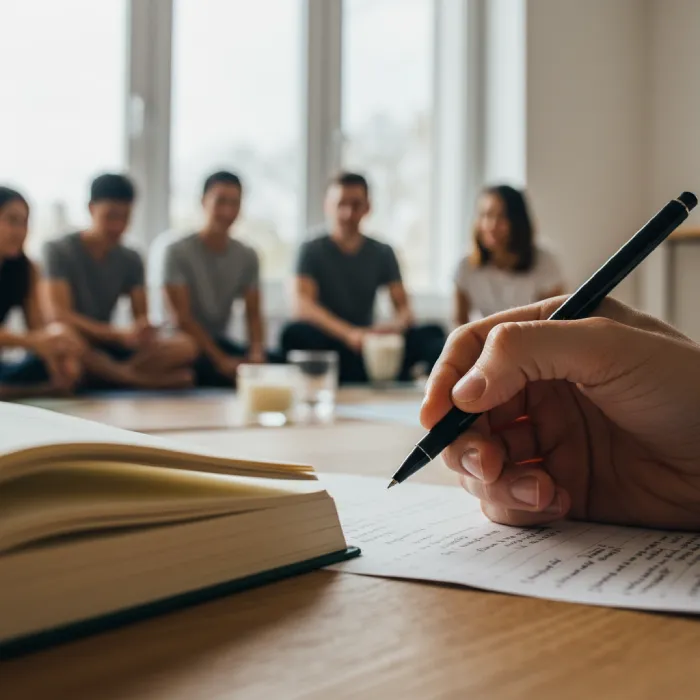
Gratitude is a simple yet powerful practice that shifts your focus from stress to positivity.
- Keep a Gratitude Journal: Each day, write down three things you are thankful for. This habit rewires your brain to notice good experiences.
- Share Your Thanks: Express appreciation verbally to family or friends, deepening connections.
- Spend Quiet Moments Reflecting: Take time to quietly consider the positive aspects of your life.
Gratitude boosts mood, reduces stress, and fosters a peaceful state of mind conducive to relaxation.
What to Avoid When Trying to Relax
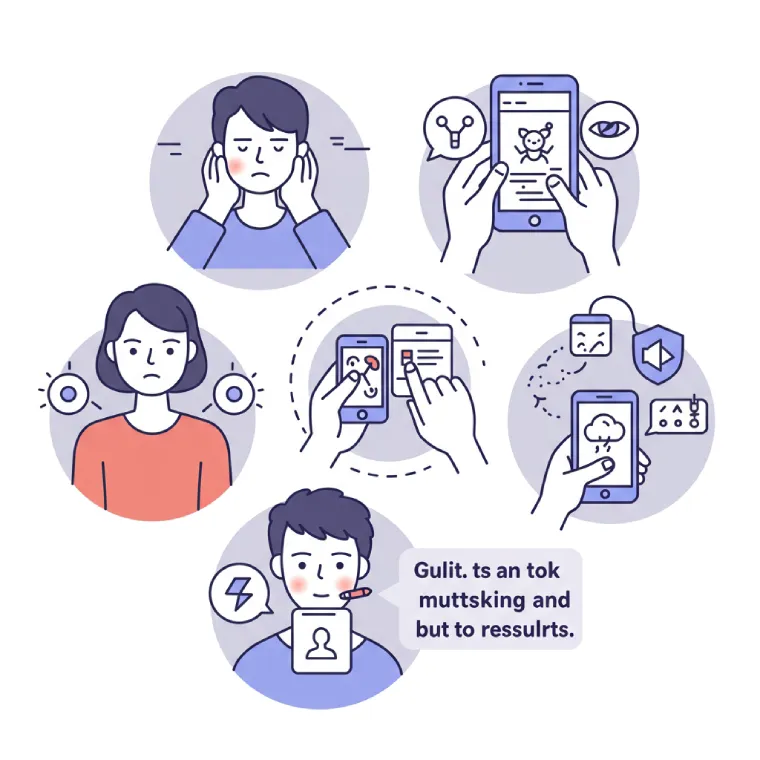
To optimize your relaxation efforts, be mindful of these common pitfalls:
- Feeling Guilty for Resting: Rest is a vital part of health, not a sign of laziness or weakness.
- Forcing Relaxation: Trying too hard to relax often backfires. Create relaxing conditions instead and let relaxation come naturally.
- Multitasking: Doing multiple things at once prevents true relaxation. Focus entirely on your chosen relaxing activity.
- Expecting Immediate Results: Learning to relax is a gradual process. Be patient and gentle with yourself.
Avoiding these traps makes relaxation more achievable and sustainable.
The Big Idea: Relaxation Is a Skill You Can Develop
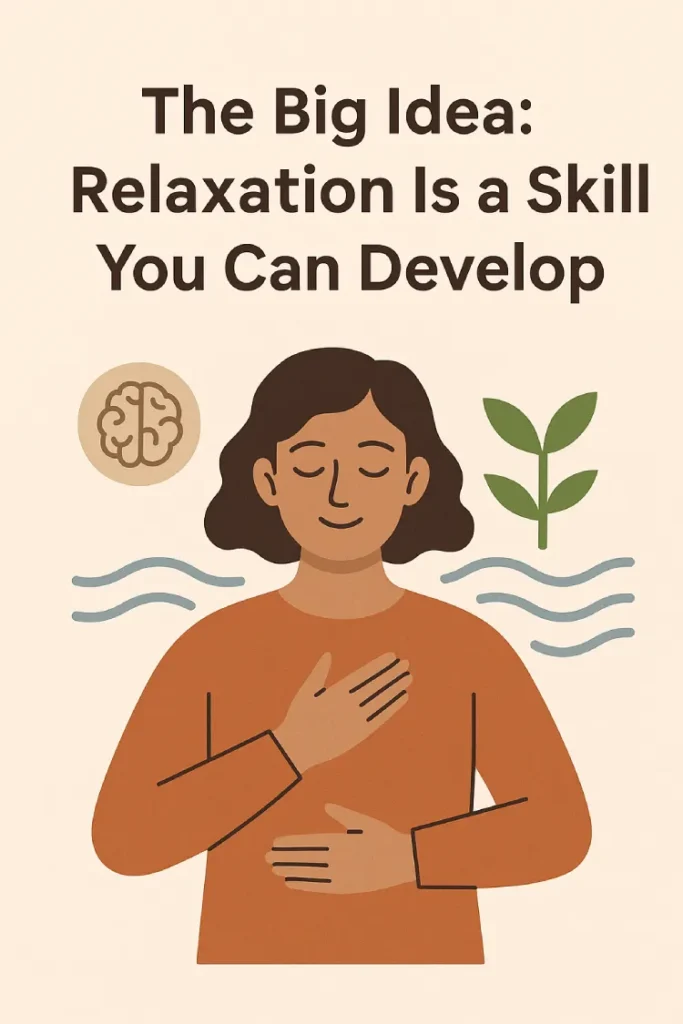
Relaxation is not just a luxury but a skill — one that improves with practice. The more regularly you dedicate time to relaxing, the easier it becomes to enter a calm state, even amid holiday excitement.
Investing in relaxation supports your physical health, mental well-being, and overall happiness. This 4th of July, give yourself permission to slow down and rest deeply. You’ll find that when you’re calm and rested, every part of your celebration — the food, the fireworks, the company — feels more joyful and meaningful.
FAQs
Q1: Is it okay to just relax instead of doing exciting things?
Absolutely. Resting is crucial for recharging your energy. Relaxation is a smart way to care for your body and mind, allowing you to enjoy both quiet and active times more fully.
Q2: How can I find quiet time if my family has a big loud party?
Try waking up earlier or stepping outside or into a quiet room after events. Communicate your needs kindly so others understand it’s to help you be more present.
Q3: What if fireworks stress me out?
Watch from a distance or use earplugs. Consider alternative celebrations that are quieter and more comfortable for you.
Q4: How can I keep my pets calm during fireworks?
Keep them indoors in a quiet room, close windows and curtains, and provide soothing background noise and distractions. Consult your vet if your pet is highly anxious.
Q5: Any tips for disconnecting from my phone?
Start by turning off notifications or setting phone-free zones and times. Gradually increase your digital detox to build mindfulness and presence.
Q6: What if I have little time to relax?
Even 5 minutes of mindful breathing or listening to calming music can lower stress. Small moments add up to greater calm.
Q7: Can mindful eating aid relaxation?
Yes. Eating slowly while noticing flavors and textures improves digestion and reduces discomfort, helping you feel more relaxed.
Q8: Why do I feel more tired after holidays?
Often it’s due to insufficient rest and disrupted routines. Schedule relaxation, prioritize sleep, and ease back into normal life gradually after the holiday.
